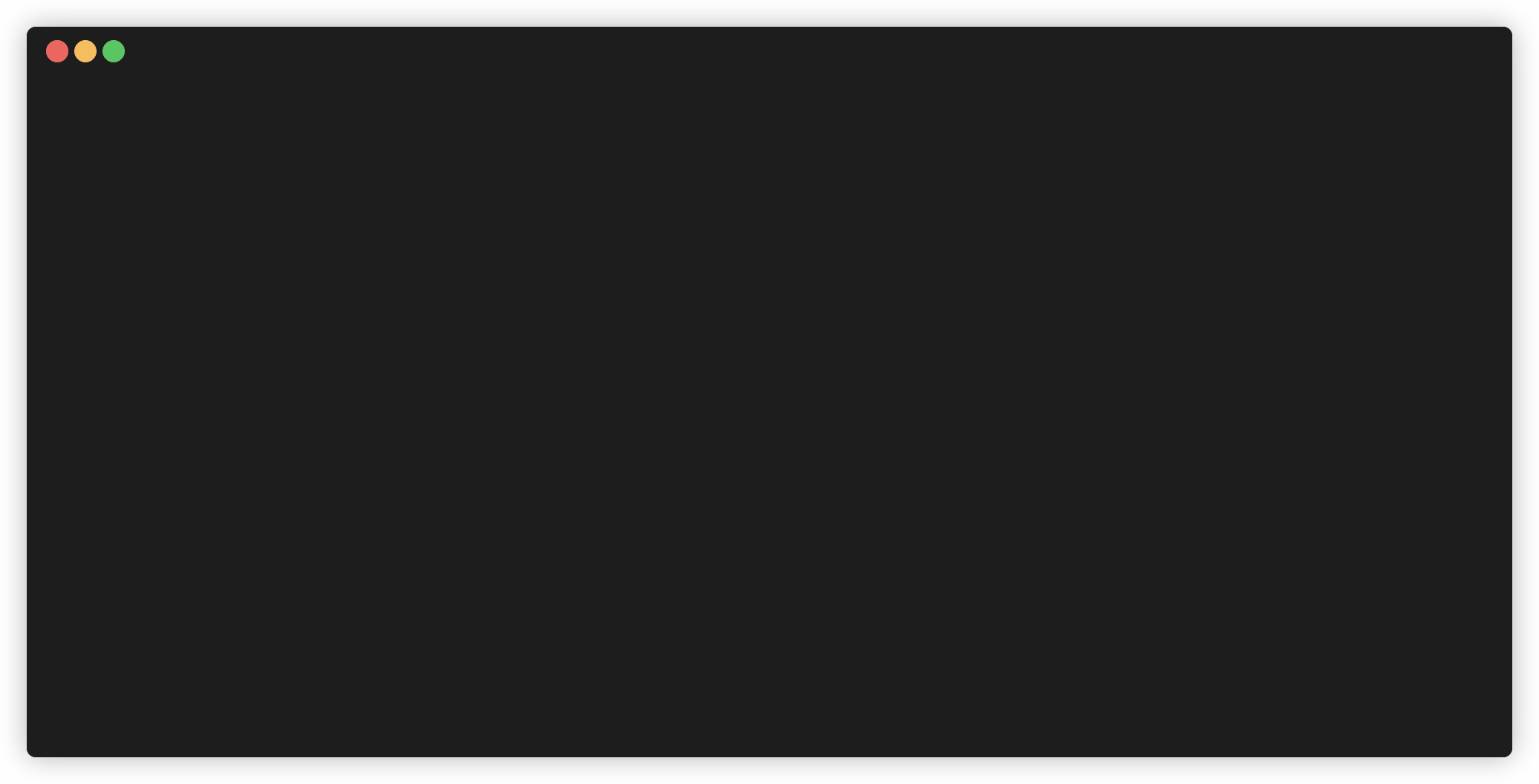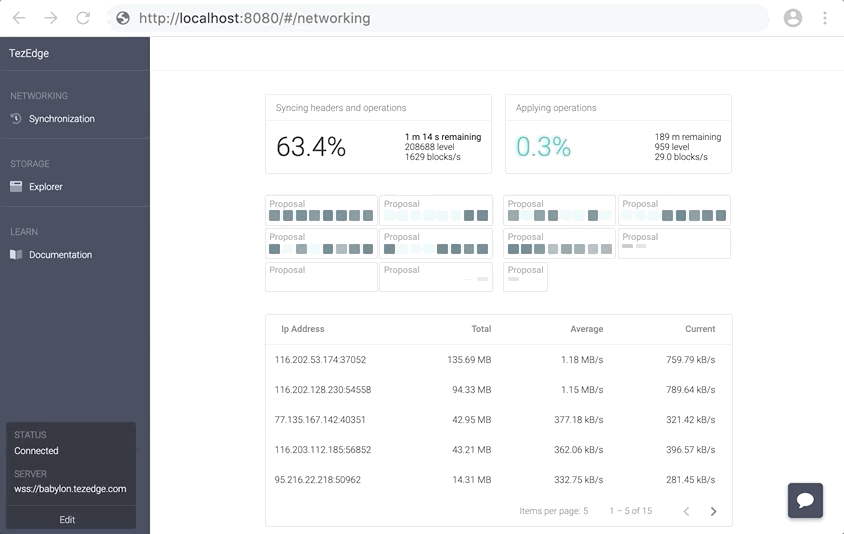The purpose of this project is to implement a secure, trustworthy, open-source Tezos node in Rust. In addition to implementing a new node, the project seeks to maintain and improve the Tezos node wherever possible.
Pre-requisites
-
GitHub repository
-
Docker
1. Open shell and type this code into the command line and then press Enter
git clone https://github.com/simplestaking/tezedge
cd tezedge
2. Download and install Docker and Docker Compose
Open shell and type this code into the command line and then press Enter:
docker-compose pull
docker-compose up
3. Open the TezEdge Explorer in your browser
You can view the status of the node in your browser by entering this address into your browser's URL bar:
1. Install rustup command
We recommend installing Rust through rustup.
Run the following in your terminal, then follow the onscreen instructions.
curl https://sh.rustup.rs -sSf | sh
2. Install rust toolchain
Rust nightly is required to build this project.
rustup toolchain install nightly-2020-05-15
rustup default nightly-2020-05-15
3. Install required libs
Install libs required to build sodiumoxide package:
sudo apt install pkg-config libsodium-dev
Install libs required to build RocksDB package:
sudo apt install clang libclang-dev llvm llvm-dev linux-kernel-headers libev-dev
4. Supported Linux distributions
We are linking rust code with pre-compiled Tezos shared library. For your convenience we have created pre-compiled binary files for most of the popular linux distributions:
supported linux distributions:
- Ubuntu (16.04, 18.04, 18.10, 19.04, 19.10, 20.04, 20.10)
- Debian (9, 10 )
- OpenSUSE (15.1, 15.2)
- CentOS (7, 8)
If you are missing support for your favorite linux distribution on a poll request at tezos-opam-builder project.
The node can built through the cargo build or cargo build --release, be aware, release build can take
much longer to compile. environment variable SODIUM_USE_PKG_CONFIG=1 mus be set. Put together, node can be build, for example, like this:
SODIUM_USE_PKG_CONFIG=1 cargo build
To run node manually, path to the Tezos lib must be provided as environment variable LD_LIBRARY_PATH. It is required
by protocol-runner. Put together, node can be run, for example, like this:
LD_LIBRARY_PATH=./tezos/interop/lib_tezos/artifacts cargo run --bin light-node -- --config-file ./light_node/etc/tezedge/tezedge.config
All parameters can be provided also as command line arguments in the same format as in config file, in which case they have higher priority than the ones in config file. For example we can use the default config and change the log file path:
LD_LIBRARY_PATH=./tezos/interop/lib_tezos/artifacts cargo run --bin light-node -- --config-file ./light_node/etc/tezedge/tezedge.config --log-file /tmp/logs/tezdge.log
Full description of all arguments is in the light_node README file.
On linux systems, we prepared convenience script to run the node. It will automatically set all necessary environmnent variables, build and run tezedge node.
All arguments can be provided to the run.sh script in the same manner as described in the previous section - Running Tezedge node manually.
The following command will execute node in debug node:
./run.sh node
To run node in release mode execute the following:
./run.sh release
If you are running OSX you can use docker version:
./run.sh docker
Listening for updates. Node emits statistics on the websocket server, which can be changed by --websocket-address argument, for example:
./run.sh node --websocket-address 0.0.0.0:12345
Open shell and type this code into the command line and then press Enter:
curl localhost:18732/chains/main/blocks/head
For a more detailed description of RPCs, see the shell and the protocol endpoints.







